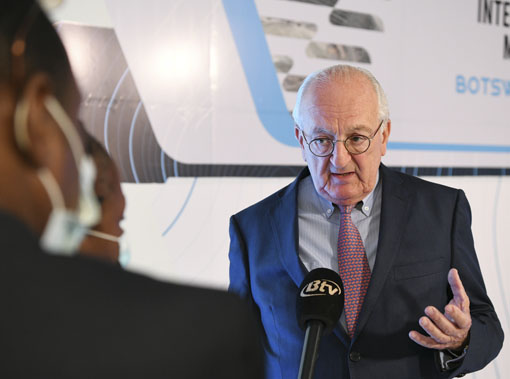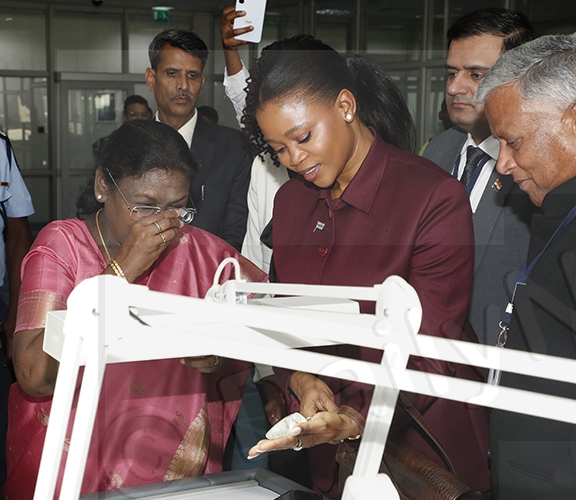Botswana prudent with diamonds
29 Jun 2022
President of World Diamond Council (WDC) has hailed Botswana as a shining example of how being home to diamond deposits can be prudently leveraged to achieve substantial economic and social development.
In an interview at the just- ended Kimberly Process Inter-session meeting in Kasane, Mr Edward Asscher said ever since diamonds were discovered in Botswana in 1967, the country’s Gross Domestic Product per capita grew at an average of 5.9 per cent per year, the third highest rate anywhere in the world over the past 55 years.
He said as a Kimberley Process (KP) observer, representing the entire diamond industry value chain, the World Diamond Council remained committed to the KP, especially as ‘we know first-hand how diamonds do good to communities when managed properly’.
He, however, cautioned that the natural diamond had competition in the marketplace, most notably from laboratory-grown diamonds.
Nonetheless, he said from the perspective of social and economic development, natural and laboratory-grown diamonds were significantly different.
“Laboratory-grown goods provide no economic and social benefit to nations or their people since their sole benefit is to a few shareholders,” he said.
Mr Asscher said the diamond industry, which was acutely attuned to sentiments related to responsible sourcing in the consumer markets, could not choose a path of inaction.
“At present we see a strong growth in industry solutions launched to support the traceability of rough diamonds from the mine to the consumer,” he said.
He added that the strong and fast development of such systems, often using block-chain technologies, would lead to a downgrading of the Kimberley Process Certification Scheme (KPCS), leading to a two-tier market for rough diamonds.
Mr Asscher said one of the advantages of such proprietary systems was the total elimination of conflict diamonds from their supply chains.
However, he warned that the great disadvantage wouldbe that the systems would not be accessible by all companies, thus could lead to the exclusion of certain mining areas, and even certain producing countries.
Further, he said while the World Diamond Council was politically neutral, it was not morally apathetic.
“We are deeply concerned for the safety of those affected by conflicts such as in the Ukraine and the Central African Republic,” he said.
He said the World Diamond Council was an organisation dedicated to the eradication of conflict and the pursuit of human rights and dignity.
Thus, he said though World Diamond Council was heartened by progress made in 2021, when the Kimberley Process Plenary ratified the declaration for responsible sourcing of rough diamonds in the supply chain, including human rights requirements, more was yet to be achieved.
“We believe more work is required to reform the KP and have been candid about what we consider to be shortcomings of the KP, most critical is the narrow definition of conflict diamonds,” he said. ENDS
Source : BOPA
Author : Thato Mosinyi
Location : KASANE
Event : Interview
Date : 29 Jun 2022






